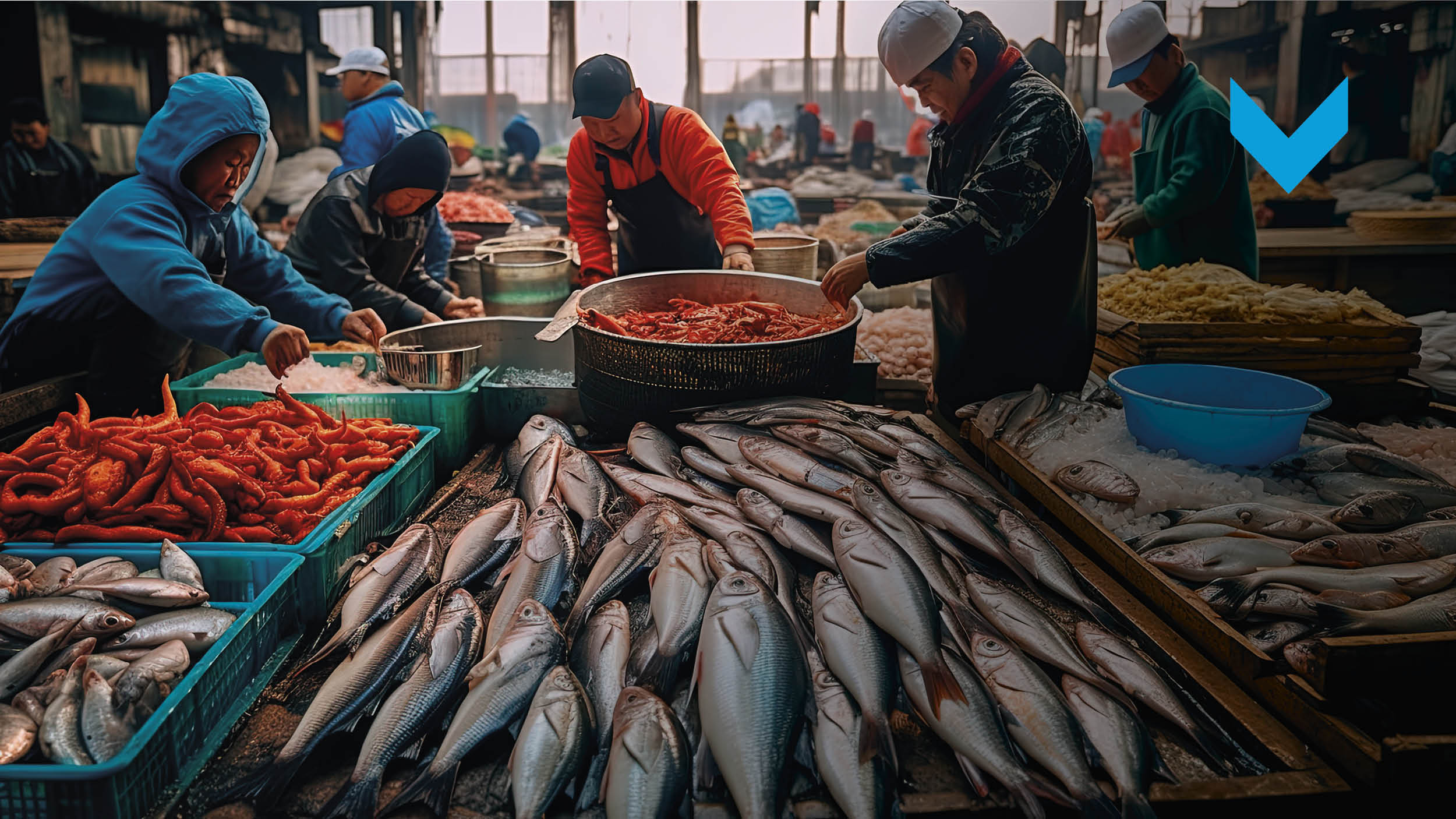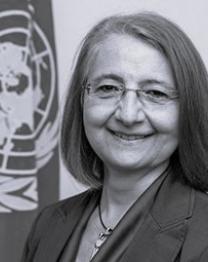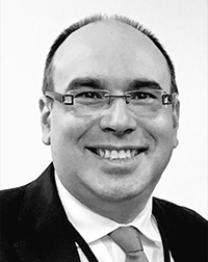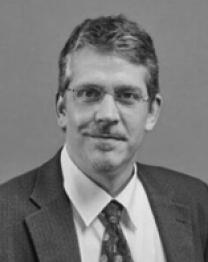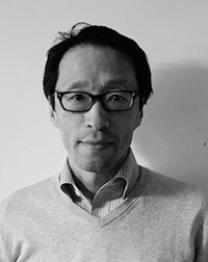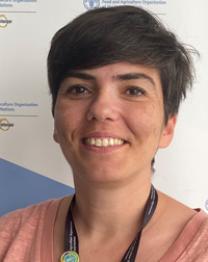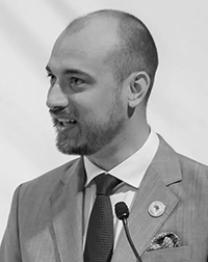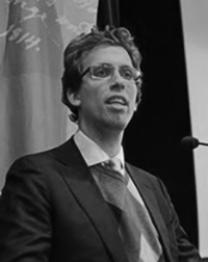Exploring new areas of South-South trade cooperation for
sustainable development
The Global System of Trade Preferences among Developing Countries (GSTP) was established through discussion within UNCTAD in 1989 as a framework for preferential tariff reductions and other measures of cooperation, including “para-tariffs, non-tariff measures, direct trade measures including medium and long-term contracts and sectoral agreements” to stimulate trade between developing countries. The membership encompasses 42 developing countries across the globe. Though GSTP members primarily focused on tariff reductions in the past, the GSTP is a flexible and agile framework that allows to enhance market access by going beyond tariffs. Extending market access cooperation beyond tariffs in sectors of particular relevance to today’s global economy and sustainable development, the GSTP could provide an effective tool for boosting South-South trade, investment, and technology flows to foster food security, public health, supply chain resilience, and climate action.
During the first session, UNCTAD’s speakers will set the stage by presenting the latest finding of the UNCTAD Trade Preferences Outlook 2024, as well as the opportunities offered by cooperation on NTMs for South-South trade. The speakers will then dive into current challenges and opportunities for market access beyond tariffs.
The second session will focus on South-South trade cooperation for sustainable development in critical sectors. During this session, UNCTAD will set the scene by presenting its analysis for marine fisheries and aquaculture and agriculture, followed by valuable contributions from experts.
Key Questions
- Which sectors hold the greatest potential for enhanced South-South trade cooperation to effectively support sustainable development in developing countries?
- How can the GSTP framework be strategically utilized to address pressing and evolving challenges in South-South trade?
- How can new forms of market access cooperation through the GSTP foster sustainable development?
Participation
The meeting is open to GSTP participants and the Group of 77 and China.
Online registration is mandatory for all those wishing to attend the meeting.
Kindly note that the invitation letter for the side event should be uploaded on to the system during the online registration process.
Any inquiries concerning registration should be sent to [email protected].
Logistics
The session will be held with physical participation in room XXIII of the Palais des Nations from 15:00 a.m. to 17:30 p.m.
Luz Maria de la Mora is the Director of UNCTAD's Division on International Trade and Commodities. As a former Vice-Minister for International Trade and decades of government and private sector positions, Ms. de la Mora developed a career in international trade policy, negotiation, operations, and trade promotion.
During her tenure as Vice-Minister for International Trade of Mexico from 2018 to 2022, Ms. de la Mora led Mexico's trade and investment policy, overseeing fourteen free trade agreements with 51 countries. To bolster Mexico's development, she steered discussions in the World Trade Organization, the United States-Mexico-Canada Trade Agreement, Comprehensive and Progressive Agreement for Trans-Pacific Partnership, and Pacific Alliance, among others. She also coordinated policy dialogues and handled private sector consultations.
Ms. de la Mora holds a PhD in Political Science from Yale University, USA, a Master's degree in International Affairs from Carleton University, Canada, and a Bachelor's degree in International Relations from El Colegio de México, Mexico.
She is fluent in English and Spanish, and proficient in French.
David Vivas Eugui is Chief of Ocean and Circular Economy Unit, a.i., Trade, Environment, Climate Change and Sustainable Development Branch, at UNCTAD.
Previously, he was a Senior Economic Affairs Officer in UNCTAD’s Trade Negotiations and Commercial Diplomacy Branch, Deputy Programmes Director at the International Centre for Trade and Sustainable Development (ICTSD), Senior Attorney at the Center for International Environmental Law (CIEL), Attaché for Legal Affairs at the Mission of Venezuela to the World Trade Organization (WTO) and Staff Attorney at the Venezuelan Institute of Foreign Trade. David is an international expert with more than 20 years of experience on legal and economic issues.
He has worked as an advisor and consultant for various institutions, international and national organizations and has lectured on intellectual property, trade, oceans economy and environmental law at the University of Strasbourg (CEIPI), Universidad de Buenos Aires (Argentina), Universidad Javeriana (Colombia), Maastricht University (the Netherlands), WIPO Distant Learning Academy, and University of Business and International Studies (Switzerland).
He holds a JD from the Universidad Catolica Andres Bello, an LLM from Georgetown University and a Master in Transnational Business from the Universidad Externado de Colombia.
Christophe Bellmann is the Head of Policy Analysis and Strategy at the Forum on Trade, Environment and the SDGs.
He is also an Associate Fellow at Chatham House and a Visiting Fellow, at the Institute of International Trade of the University of Adelaide. Since 2014, he serves as adviser to the group of least developed countries in WTO negotiations. His work focuses on trade and environment, climate change, the circular economy, development and food security.
Before joining TESS, Mr. Bellmann was a Senior Policy Advisor at the International Institute for Sustainable Development (IISD) and a Senior Resident Research Associate at the International Centre for Trade and Sustainable Development (ICTSD). Over the course of his career, he has worked in different capacities for various international organizations including FAO, UNCTAD, the OECD, the WTO and ECLAC.
He holds a master's degree from the Graduate Institute of International and Development Studies in Geneva.
Taisuke Ito is the Chief of the Trading Systems Section, Division on International Trade and Commodities, at UN Trade and Development (UNCTAD).
He leads the work of a team responsible for trade preferences, South-South trade cooperation and the multilateral trading system, and serves as the Focal Point for the Global System of Trade Preferences among Developing Countries (GSTP).
He holds a master's degree in international relations from the Graduate Institute of International and Development Studies in Geneva.
Pınar Karakaya is an economist at the FAO Liaison Office in Geneva where she leads the trade and food security workstream.
She has 17 years of professional experience in agrifood trade, commodity markets and trade negotiations. Prior to joining FAO, she worked as a government official for the Türkiye’s Ministry of Trade which is the sole authority in the country for import and export policies.
From March 2019 to July 2022, she served as a Commercial Counsellor at the Permanent Mission of Türkiye to the WTO where she focused on fisheries subsidies negotiations and agriculture negotiations. Pinar has a strong educational background in international relations, with a particular focus on international political economy.
She holds a Master of Arts in International Policy Studies from Stanford University in the United States and a Master of Business Administration from the Middle East Technical University in Türkiye.
Christian Knebel is an Economic Affairs Officer at United Nations Conference for Trade and Development. He manages technical cooperation projects and provides advisory services on trade policy and negotiation strategy.
He leads UNCTAD’s support programme to the African Union on the implementation of the AfCFTA Non-Tariff Barriers mechanism. Specializing on research regarding non-tariff measures and regulatory cooperation, he has drafted reports on the AfCFTA, ECOWAS, SADC, ASEAN and MERCOSUR.
He was a visiting lecturer at the World Trade Institute. Previously, he worked at the International Trade Centre where he conducted and analyzed private sector surveys on obstacles to trade in various countries.
He studied International Economics at the University of Tübingen, Germany, and in Buenos Aires, Argentina.
Mr. Peter Lunenborg is Senior Programme Officer of the Trade for Development Programme of the South Centre. He provides policy analysis and advice on trade policies to developing countries and developing country groupings in Geneva as well as to capitals.
He closely follows the various negotiations and discussions at the World Trade Organization (WTO), and has worked on Economic Partnership Agreements (EPAs) and the African Continental Free Trade Area (AfCFTA).
Before joining the South Centre, he was a manager at Maersk. He has published, inter alia, in the Ashgate Research Companion to International Trade Policy and the Global Trade and Customs Journal.
He has an LLM and MSc in Economics from the Erasmus University, Rotterdam, The Netherlands.
Maria Florencia Sarmiento is a policy advisor within the Economic Law and Policy Program at the IISD. Her primary focus is the dynamic intersection of international trade and voluntary sustainability standards, as well as investment law policy in the context of sustainable development.
She has experience in mapping and analyzing sustainability initiatives, as well as examining provisions included in trade agreements and domestic public policies related to social and environmental issues. At IISD, she provides training courses, workshops, and a range of advisory services for developing country officials, covering sustainability standards, investment treaties, negotiations, and dispute prevention and management.
Before joining IISD, Florencia was an independent consultant specializing in trade and investment matters. In this context, she has worked on sustainable trade and investment governance projects with the United Nations Conference on Trade and Development and the Columbia Center on Sustainable Investment.
Florencia holds a PhD in international law from the Geneva Graduate Institute of International and Development Studies and an LL.M. in international dispute settlement, a joint program offered by the Geneva Graduate Institute and the University of Geneva in Switzerland.

